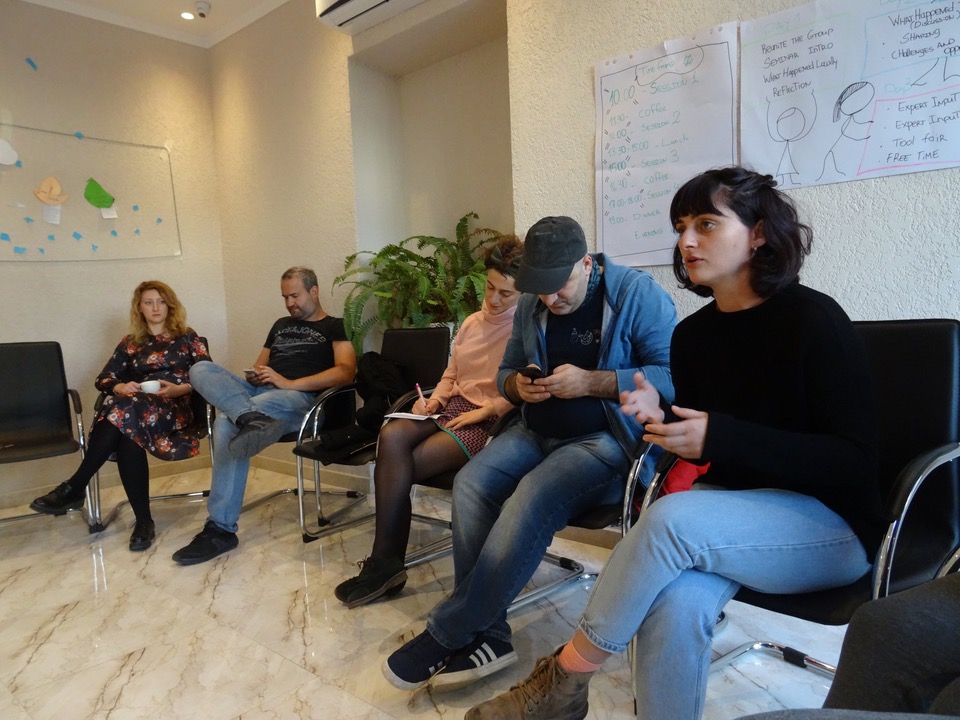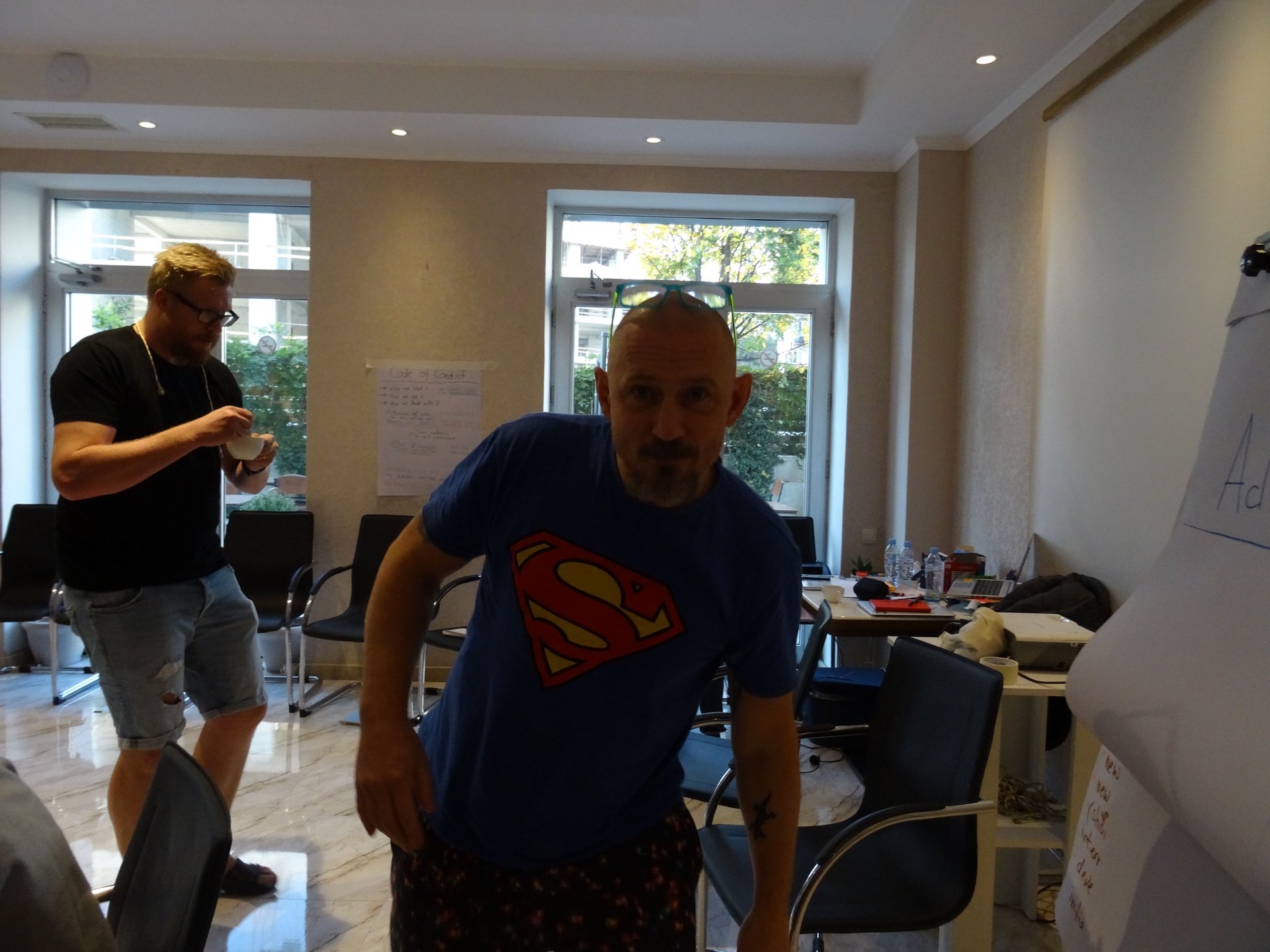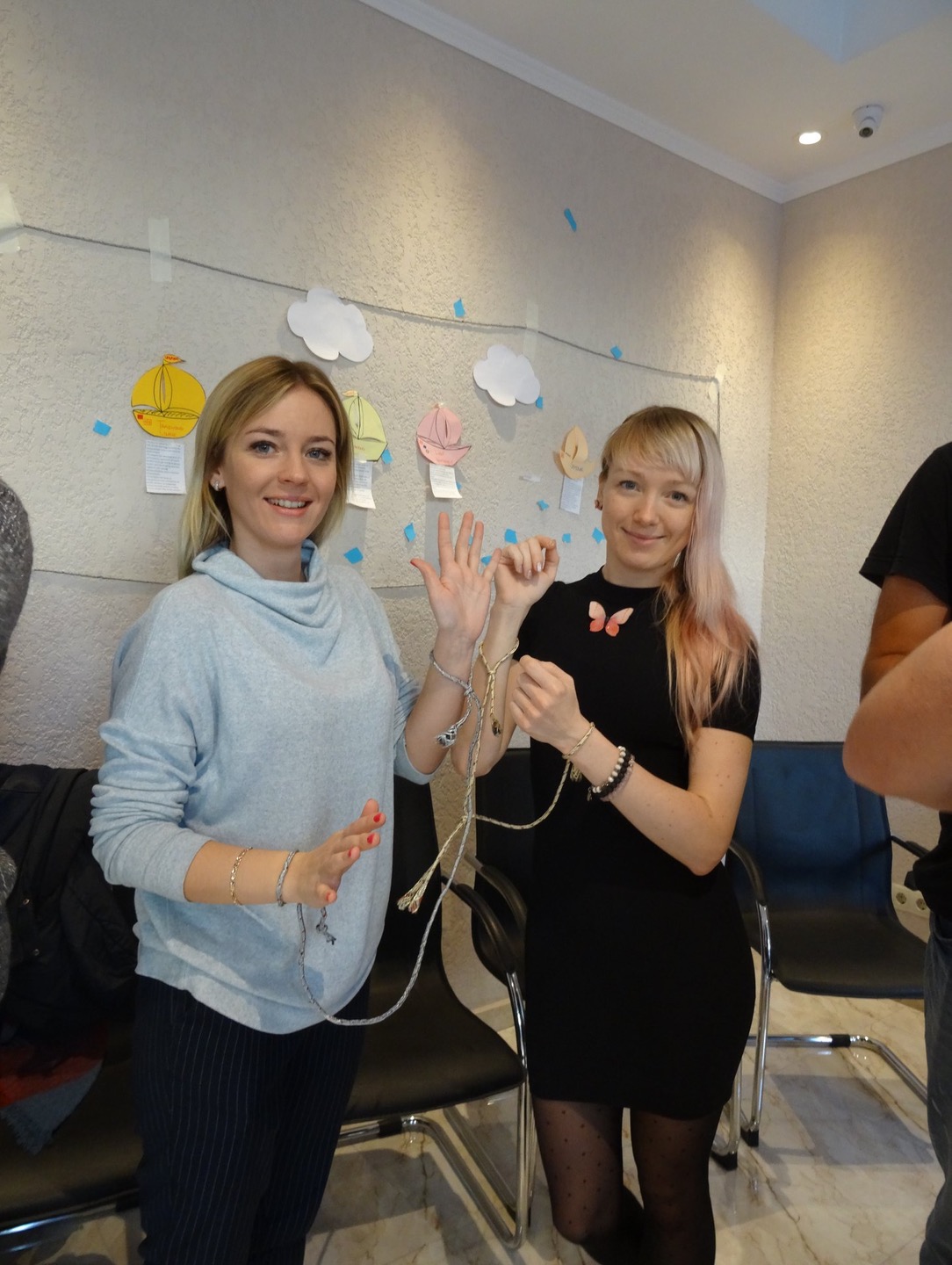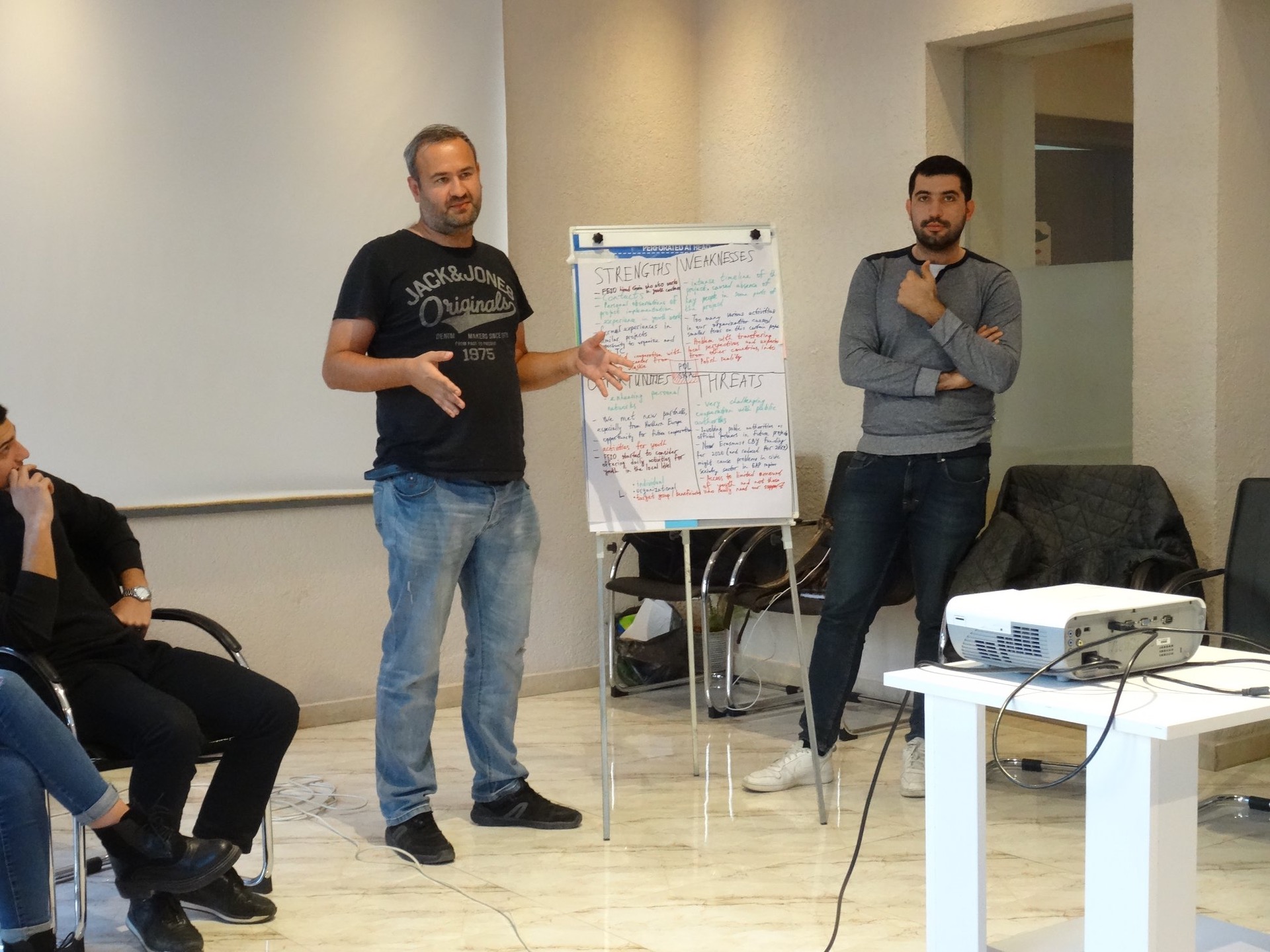
On Monday the 17th of November another phase of the UPGRADE project started in Tbilisi. During the seminar partner organizations from Sweden, Poland, Ukraine, Estonia and Georgia could exchange their experiences and tools they used in their youth centers back home within the project activities. The main objectives of the activity were:
- To reflect upon the activities of the period March 2019- October 2019 and present the development analysis of youth centers and involvement of youth organization;
- To share created activities and tools used in the grassroots work of youth centers and youth organizations;
- To evaluate the development of partner country youth centers and introduce the programme on the development of youth centers to programme country organizations;
- To refine newly applied approaches, increasing their transferability to other youth centers and organizations;
- To decide on the content for an experience-passing handbook created by the project consortium

The first day was dedicated to getting to know each other, as not all people have been present at the previous stages of the project, and about looking back at what has already happened during the project. To reflect on the activities that were done on the local level, all the representatives came together to create a SWOT analysis (Strengths, Weaknesses, Opportunities, Threats), which helps to better understand the benefits and downsides of the activities.
Next day’s main focus was put on ‘what happened internationally’. At first, a short presentation was given about the previous youth exchange that took place at the beginning of October in Rustavi, Georgia. The youth leaders from the YE give an introduction to all the stages: Preparation, Arrival-Departure, implementation and closure of the process. Afterwards, more concrete issues connected to the youth exchange were discussed by using the ‘forum cafe’ format. Also, participants shared tools, games used in the pilot activities.

Together with the sharing Seminar included planning for the upcoming future activities such as, the second youth exchange and closure event of the project conference. Based on the previous Youth Exchange experiences, participants discussed all the possible challenges that can occur during the implementation phase, agreed on final dates and location for the second youth exchange.
Additionally, in order to make the planning process for the final closure event more participatory participants of the seminar were divided into following groups:Human Resources group, Programme group, Practicalities and Media group. All the groups could design the work plan and main activities for their groups to ensure the quality performance of the conference. During presentations, other groups members could add other additional ideas to existing ones.

As the final event includes presentation of the final results, the partner organization shared their vision about the handbook and what additional sections it should have for a better focus on project results and experiences gained.
